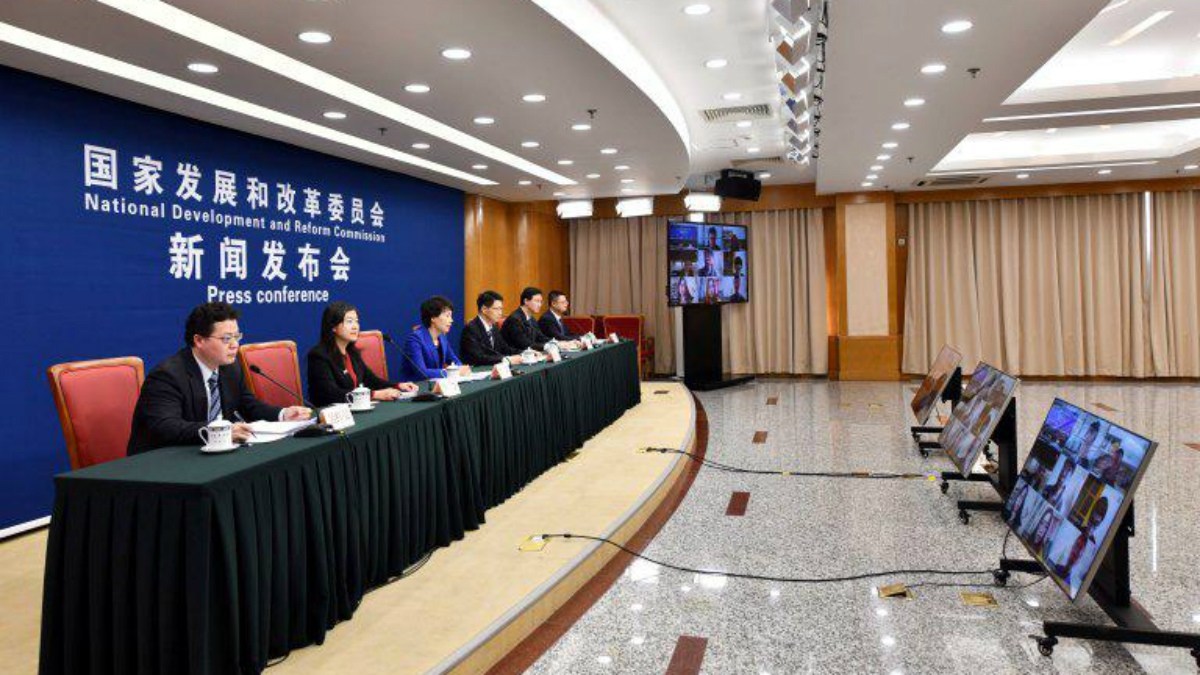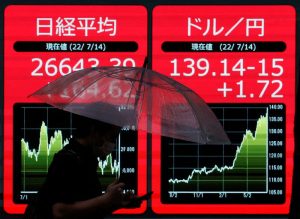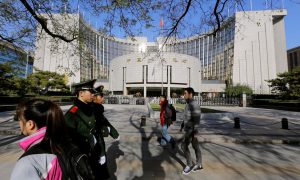(ATF) A rolling thunderstorm of bond defaults has triggered a wave of bond cancellations, as a tumultuous market has begun to question everything from regulations to the credibility of rating agencies.
The crisis began with defaults by big name state-owned enterprises (SOEs) such as Yongmei Holdings, Tianqi Lithium, Baoshang Bank, Brilliance Auto, Ziguang Group in recent weeks, and this has led to a mass of defaults – causing a rapid rise in market risk aversion, which triggered significant discounts in related bonds, a sharp drop in the net value of public funds, and asset sales.
A series of reactions followed such as the mass cancellation of bond issuance – more than 120 by Tuesday November 17 reportedly – and the widening of credit spreads has also attracted the attention of regulatory authorities, who are trying to rectify the mess.
The Asia Eight: Daily must-reads from world’s most dynamic region
Credit debt default – the number of defaults by state-owned enterprises – has hit a historical high.
Starting in late October, the corporate bond market was described in Chinese media outlets as ” rolling thunder.”
On October 23, Brilliance Auto started the landslide when its bond “17 Huaqi 05” failed to be paid on schedule and there was a default, and all the company’s existing corporate bonds were suspended from the opening of the market on that day.
On November 10, the 1-billion-yuan “20 Yongmei SCP003” issued by Yongmei Power Holdings expired and it announced that it could not redeem the principal and interest as agreed. This constituted a substantial default.
On November 13, last Friday, Tianqi Lithium, a leading lithium industry company, exploded next. The company’s $1.88 billion (approximately 12.44 billion yuan) M&A loan will expire at the end of this month, November 2020. The firm let it be known there is a strong possibility of default due to its failure to repay in full and in time.
On the evening of the same day, Jackie Chan Construction Group Co Ltd announced that the 200-million-yuan “17 Jackie Chan 03” corporate bonds issued by the company defaulted.
Also on November 13, Baoshang Bank announced that it will implement a full write-down of the issue of 6.5-billion-yuan “2015 Baoshang Bank Secondary Bonds”, saying that the principal and any unpaid accumulated interest payable – a total 5.85 billion yuan ($892.5 million) – will no longer be paid.
On Monday evening, November 16, voting on the private placement bond “17 Ziguang PPN005” issued by Ziguang Group was invalidated. This means that Ziguang Group’s 1.3-billion-yuan “17 Ziguang PPN005” private placement bond has defaulted.
In addition, a research report by Niuniu Finance (published on http://www.wabei.cn/) based on Wind data, shows that as of November 13, some 23 entities have defaulted for the first time this year. Although the number is far less than the 35 in 2018 and 41 in 2019, the number of state-owned enterprises in default has reached seven, the same as 2016, the previous historical high.
According to the research report, the overall number of state-owned enterprise defaults were due to the government’s fiscal balance rules, while private enterprises are more affected by the growth of social financing.
Market panic
Market reactions such as bond discounts have become the norm as a result, and credit spreads have significantly widened. The tide of credit debt defaults has triggered panic among investors, according to Niuniu Finance.
Bonds issued by the defaulting entities have all experienced substantial discounts. For example, after the Yongmei Holdings “thunderstorm” on November 10 , its bonds fell sharply for two consecutive days falling over 10.4%. And on November 13, the “18 Ziguang 04” and “19 Ziguang 02” issued by Ziguang Group plummeted by 16.96% and 20% respectively.
Meanwhile, bonds issued by Yunnan Construction Investment, Suning Tesco, Pingmei Group, Jizhong Energy, and others that the market lacks confidence in, have also seen substantial discounts. For example, as of the close of November 12, 18 Suning 01 saw a cumulative decrease of 16%; and 18 Suning 02’s saw a cumulative decrease of 16.5%; 18 Suning 03’s lost more than 17%; and for a full set, 18 Suning 04’s saw a decrease of 22.2%.
Immediately after these disasters, the net value of some public funds fell sharply, and the selling of institutional assets intensified.
Finally, due to the impact of the market environment, many bond issuances have been cancelled. Choice data shows that from November 10 to November 17, a total of 129 bond issuances were cancelled or postponed (126 were cancelled and three postponed). And the total planned issuance scale was as high as 48.39 billion yuan. The excuse that most firms gave for cancelling issuance was “recent market (interest rate) volatility”.
In addition to market woes the negative sentiment fermented a surge in product redemption. The pressure brought about by the wave of credit defaults has also led to a substantial increase in coupon rates.
NDRC says ‘focus on three areas’
In the face of this wave of defaults, government supervision has also been moved to action.
Today, November 17, Meng Wei, the spokesperson of the National Development and Reform Commission, stated at the NDRC’s regular press conference that the next step, in dealing with the debt risk and defaults, efforts will be focused on three areas:
One is to strengthen supervision; give full play to the advantages of local territorial management, and do better in supervision of corporate bonds in the regions through project screening, risk investigation, supervision and inspection, to prevent and resolve risks in the corporate bond sector.
The second move is to strengthen coordination between the corporate credit bond management departments, build an efficient work coordination mechanism, strengthen information disclosure and unified law enforcement, improve system construction, promote the unification of bond market disclosure rules, and jointly prevent and resolve potential risks in the bond market.
The third task is to “catch early and catch small”. The CDRC will establish a risk prevention and control work system for early identification, early warning, early detection, and early disposal to understand risks in advance and deal with them as soon as possible. In response to individual signs of potential risks, these cadres will pay close attention to the interest payments of related bonds, and urge the formulation of resolution plans to protect the legitimate rights and interests of investors.
Meng Wei, the NDRC spokeswoman, said that currently, affected by various factors at home and abroad, the bond market is facing some new challenges in preventing and resolving major risks.
In accordance with the country’s decision and deployment on preventing and resolving major risks, he said the NDRC attached great importance to the prevention of corporate bond risks, and always puts the prevention and resolution of systemic financial risks in an important position, and firmly holds the bottom line of avoiding systemic financial risks.
Generally speaking, the risk prevention of corporate bonds was relatively good, Meng said. Putting a positive spin on the disaster, she said “the cumulative default rate is at the lowest level in recent years.”
























